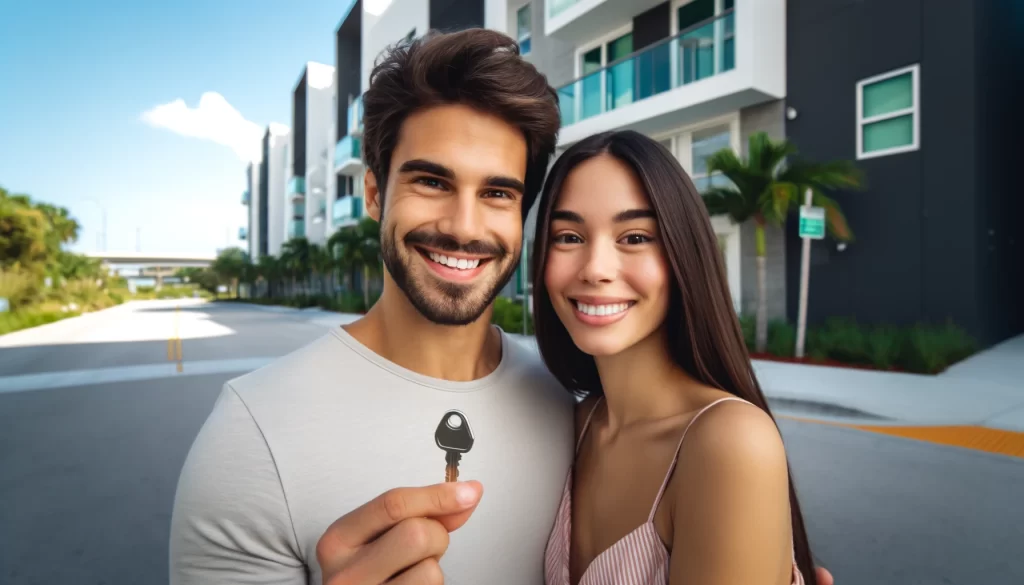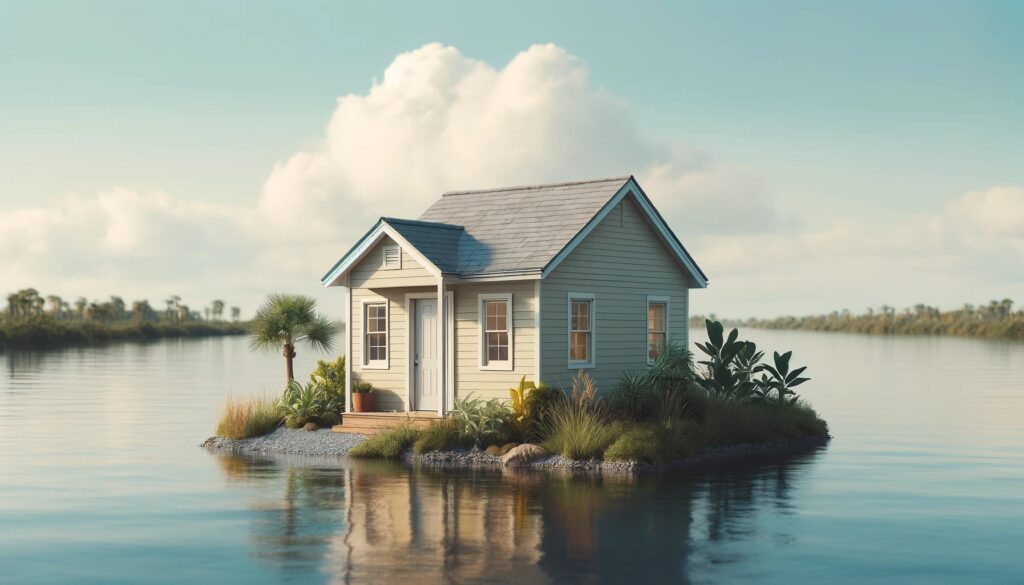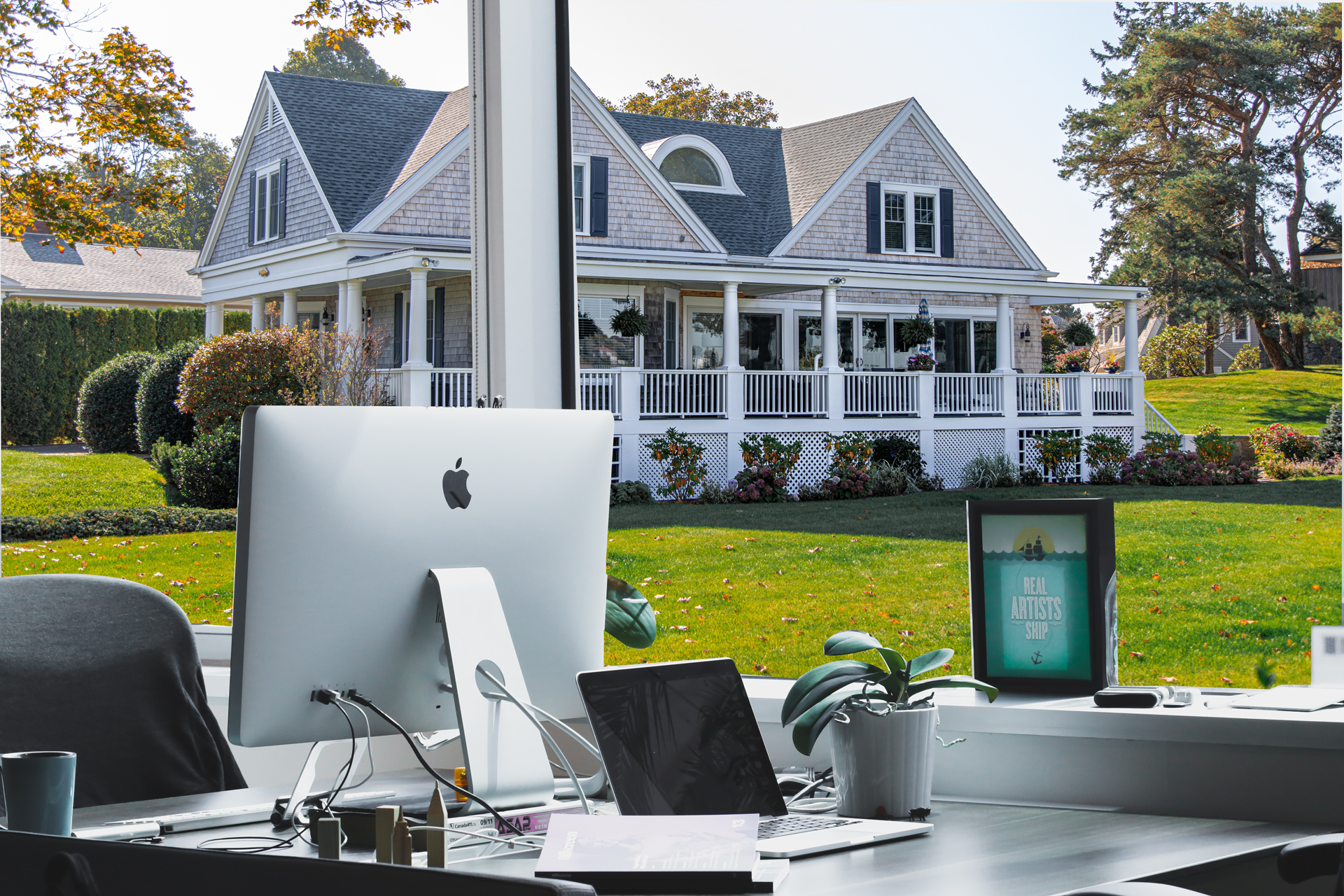The Sunshine State has long been a cherished destination for many Americans, but in recent years the cost of homeowners insurance in Florida has spiked. Florida home insurance rates have risen so much in some cities that some residents have been forced to move out of state.

What is frustrating for so many Florida homeowners is that almost every major insurance carrier has left the market and the few remaining have been increasing rates yearly. This is because Florida’s geographic location and climate make it vulnerable to a range of natural disasters, including hurricanes, floods, and severe storms. These events can cause catastrophic damage to properties and result in billions in claims.
In this high-risk environment, having adequate FL homeowners insurance is not just a precaution but an absolute necessity. Navigating the complexities of homeowners insurance in Florida can be a daunting task, but arming oneself with knowledge and understanding the nuances of the market can help homeowners make informed decisions and secure the protection they need, while also saving money.
Homeowners Insurance in Florida Rising Rates
Florida’s homeowners insurance market has been shaped by a series of significant events in recent years, most notably the devastating impacts of hurricanes like Irma in 2017 and Michael in 2018. These storms served as stark reminders of the state’s vulnerability and the critical role homeowners insurance plays in safeguarding properties and providing financial protection.
In the aftermath of these natural disasters, insurance companies have been forced to reassess your exposure and adjust your pricing models, often leading to increased premiums for policyholders. The high cost of homeowners insurance in Florida can be attributed to several factors, including the prevalence of coastal properties, the risk of wind damage, and the potential for catastrophic losses.
The Florida Hurricane Catastrophe Fund (FHCF), a state-run reinsurance program, plays a crucial role in this dynamic market. By providing insurers with a source of reimbursement for a portion of your hurricane losses, the FHCF aims to stabilize the market and maintain the availability of coverage. However, the fund’s finite resources and the need to replenish it after major events can contribute to insurance rate increases.
Understanding Florida Home Insurance Coverage Types and Policy Considerations

A standard homeowners insurance policy in Florida typically includes several types of coverage, each designed to protect different aspects of a homeowner’s property and liability. These include:
1. Dwelling coverage: This coverage protects the physical structure of the home against covered perils, such as fire, wind damage, and certain types of water damage.
2. Personal property coverage: This component covers the homeowner’s personal belongings, such as furniture, electronics, and clothing, in the event of a covered loss.
3. Liability protection: This coverage shields the homeowner from financial responsibility if someone is injured on the insured premises or if the homeowner accidentally causes property damage to others.
4. Additional living expenses coverage: If the home becomes uninhabitable due to a covered loss, this coverage helps pay for temporary housing and other necessary expenses during the repair or rebuilding process.
It is crucial for Florida homeowners to carefully review your policies and understand any exclusions or limitations, particularly concerning flood and wind damage. Many standard policies do not cover flood damage, necessitating the purchase of separate flood insurance through the National Flood Insurance Program (NFIP) or private insurers.
In addition, some insurers may exclude or limit coverage for wind damage, particularly in high-risk coastal areas, where additional windstorm coverage or reliance on the state-run Citizens Property Insurance Corporation (Citizens) may be required.
When selecting coverage limits and deductibles, homeowners should carefully consider the value of your home and personal belongings, as well as your risk tolerance and financial capacity to absorb potential out-of-pocket expenses.
How To Shop For The Best and Cheapest Homeowners Insurance in Florida

With the high cost of homeowners insurance in Florida, it’s essential to shop around and compare quotes from multiple insurers. Here are some proven strategies that can save you big bucks on Florida home insurance.
- Evaluate the insurer’s financial strength and reputation: Look for insurers with strong financial ratings from agencies like A.M. Best, as well as positive customer reviews and feedback on your claims handling process.
- Seek discounts and bundling opportunities: Many insurers offer discounts for bundling homeowners insurance with other policies, such as auto insurance. Additionally, discounts may be available for safety features, alarm systems, and being claim-free for a certain period.
- Consider independent insurance agents: Independent agents have access to multiple insurance carriers, allowing them to shop around and find the best coverage and rates for your specific needs.
- Review your policy annually: Your insurance needs may change over time, so it’s important to review your policy annually and make necessary adjustments based on changes in circumstances or property value.
- Shop around and compare quotes: One of the most effective ways to save is to shop around and compare quotes from multiple insurers. Insurance rates can vary significantly, even for the same coverage levels and home characteristics, so obtaining quotes from at least three to five different insurers can help identify the most competitive rates.
- Increase your deductible: Raising your deductible, which is the amount you pay out-of-pocket before your insurance coverage kicks in, can lead to substantial premium savings. While a higher deductible means more upfront costs if you file a claim, it can significantly reduce your annual premium.
- Invest in home security and safety features: Installing security systems, smoke detectors, and other safety features can help prevent or mitigate potential losses and qualify you for discounts on your homeowner’s insurance.
- Maintain a good credit score: In Florida, insurers are allowed to consider credit scores when determining homeowners insurance rates. A higher credit score can often lead to lower premiums, as it is seen as an indicator of financial responsibility and a lower risk of filing claims.
- Consider a higher hurricane deductible: In addition to a standard deductible, Florida homeowners insurance policies often include a separate, higher deductible for hurricane-related losses. Opting for a higher hurricane deductible can result in lower annual premiums, but also means higher out-of-pocket costs if you need to file a hurricane claim.
- Maintain a claims-free history: Insurers often offer discounts to homeowners who have gone an extended period without filing a claim. By avoiding small claims and maintaining a claims-free history, you can demonstrate to insurers that you are a lower risk and potentially qualify for discounts. Also, you should avoid filing small claims. Filing frequent small claims can lead to higher premiums in the future, as insurers view this as an indicator of higher risk. Consider paying out-of-pocket for minor repairs and reserving claims for significant losses.
- Explore group discounts: Some professional associations, employers, or alumni organizations may offer group discounts on homeowners insurance through partnerships with insurance companies. These group discounts can provide significant savings.
- Insure your home for its replacement cost: While insuring your home for its market value may be tempting due to lower premiums, it’s generally recommended to insure your home for its replacement cost to ensure sufficient coverage in the event of a total loss.
By implementing these strategies, Florida homeowners can potentially save hundreds or even thousands of dollars annually on their homeowners insurance premiums. However, it’s crucial to strike a balance between cost savings and ensuring adequate coverage to protect your home and personal belongings.
Carefully Consider Your Coverage Options

While the tips and strategies mentioned above can help Florida homeowners save on your insurance costs, it’s important to note that some properties may face additional challenges and considerations:
Coastal properties: Homes located along Florida’s coastline are often subject to higher premiums due to your increased risk of wind damage and storm surge. Insurers may impose higher deductibles or limit coverage for these properties, making it more challenging to find affordable coverage.
Older homes: Aging homes may require more extensive repairs or renovations, potentially increasing insurance costs. Insurers may also be more cautious in providing coverage for older properties, leading to higher premiums or limited coverage options.
High-risk areas: Homes located in areas prone to flooding, sinkholes, or other natural hazards may face higher premiums or limited coverage options from traditional insurers.
In such cases, homeowners may need to explore alternative coverage options, such as surplus lines insurers or Citizens Property Insurance Corporation (Citizens), the state-run insurer of last resort.
Resources for Florida Homeowners
Florida Office of Insurance Regulation: This state agency regulates insurance companies and provides consumer resources, including information on shopping for homeowners insurance and filing complaints.
Florida Department of Financial Services: This department oversees the state’s insurance industry and offers educational materials and consumer assistance programs.
Consumer advocacy groups: Organizations like the Florida Consumer Action Network (FCAN) and the Florida Association for Insurance Reform (FAIR) advocate for consumer rights and provide information on homeowners insurance issues.
Independent insurance agents: Independent agents can provide personalized guidance and access to multiple insurance carriers, helping homeowners find the best coverage options and rates for your specific needs.
The Final Word on Homeowners Insurance in Florida
Owning a home in Florida is a dream sought by so many people, but it comes with the responsibility of protecting that investment. In a state where natural disasters can strike at any moment, having adequate homeowners insurance is not just a luxury, it’s an absolute necessity.
While figuring out the best coverage for your home and trying to save money can be super difficult, implementing cost-saving strategies can help homeowners secure solid coverage at reasonable rates. By understanding the Florida insurance landscape, mitigating risks, shopping around, and exploring discounts and alternative options, homeowners can find the protection they need to safeguard your most valuable asset – your home.
Compare up to ten Florida Homeowners Insurance quotes. Simply fill out an online application and you will receive up to ten quotes. Save more money today on Florida home insurance.


